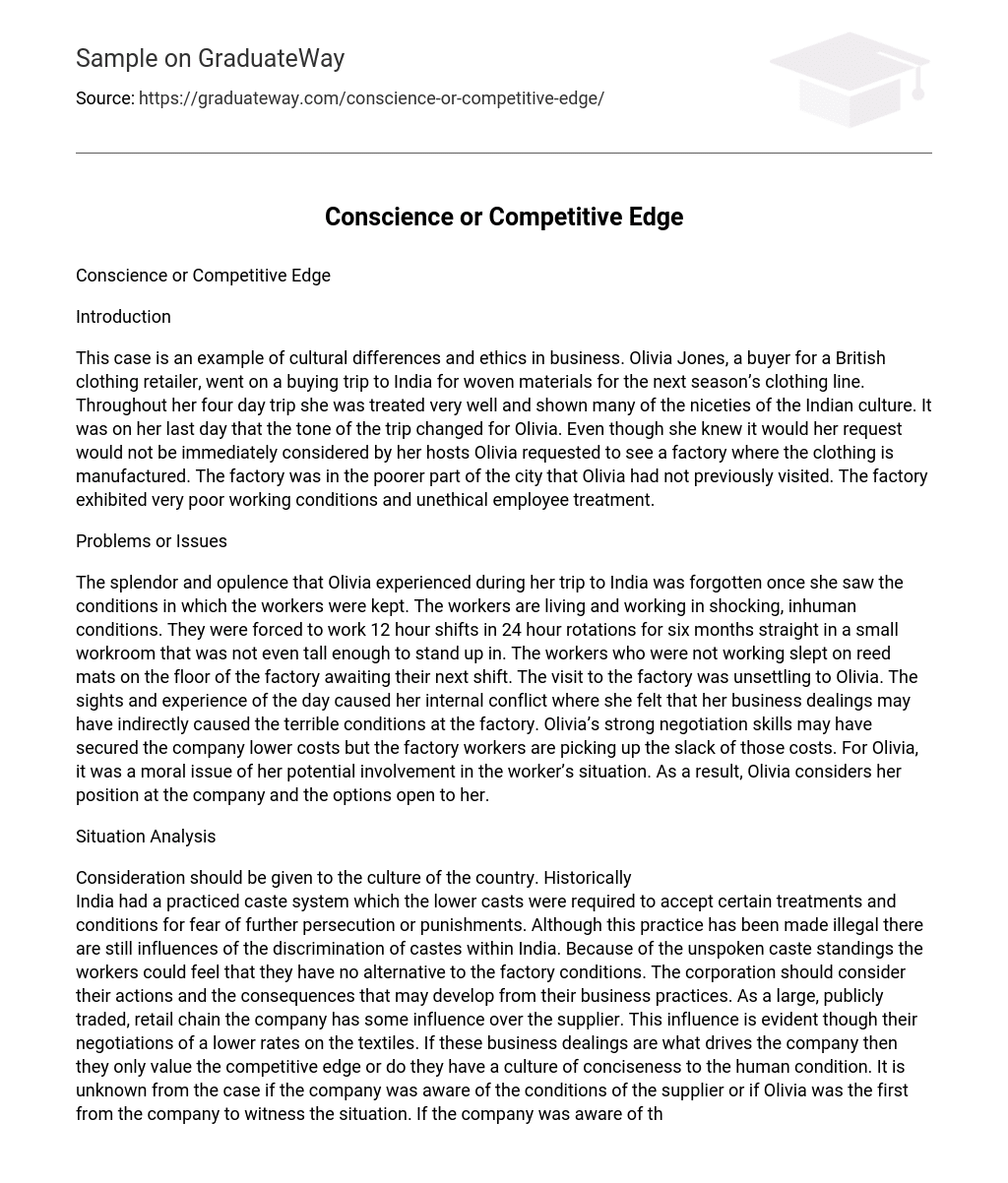Introduction
This case is an example of cultural differences and ethics in business. Olivia Jones, a buyer for a British clothing retailer, went on a buying trip to India for woven materials for the next season’s clothing line. Throughout her four day trip she was treated very well and shown many of the niceties of the Indian culture. It was on her last day that the tone of the trip changed for Olivia. Even though she knew it would her request would not be immediately considered by her hosts Olivia requested to see a factory where the clothing is manufactured. The factory was in the poorer part of the city that Olivia had not previously visited. The factory exhibited very poor working conditions and unethical employee treatment.
Problems or Issues
The splendor and opulence that Olivia experienced during her trip to India was forgotten once she saw the conditions in which the workers were kept. The workers are living and working in shocking, inhuman conditions. They were forced to work 12 hour shifts in 24 hour rotations for six months straight in a small workroom that was not even tall enough to stand up in. The workers who were not working slept on reed mats on the floor of the factory awaiting their next shift. The visit to the factory was unsettling to Olivia. The sights and experience of the day caused her internal conflict where she felt that her business dealings may have indirectly caused the terrible conditions at the factory. Olivia’s strong negotiation skills may have secured the company lower costs but the factory workers are picking up the slack of those costs. For Olivia, it was a moral issue of her potential involvement in the worker’s situation. As a result, Olivia considers her position at the company and the options open to her.
Situation Analysis
Consideration should be given to the culture of the country. Historically
India had a practiced caste system which the lower casts were required to accept certain treatments and conditions for fear of further persecution or punishments. Although this practice has been made illegal there are still influences of the discrimination of castes within India. Because of the unspoken caste standings the workers could feel that they have no alternative to the factory conditions. The corporation should consider their actions and the consequences that may develop from their business practices. As a large, publicly traded, retail chain the company has some influence over the supplier. This influence is evident though their negotiations of a lower rates on the textiles. If these business dealings are what drives the company then they only value the competitive edge or do they have a culture of conciseness to the human condition. It is unknown from the case if the company was aware of the conditions of the supplier or if Olivia was the first from the company to witness the situation. If the company was aware of the conditions of the factory then their corporate values must not translate to those of human rights or compassion. From Olivia’s perspective the situation is one of weighing her personal values to the values and practices of the company. Olivia is troubled by the thought that her business dealings with the factory may have contributed to the resultant conditions. In determining the alternatives Olivia must consider if her personal values and ethical standards are in alignment with the corporate standards and demands.





